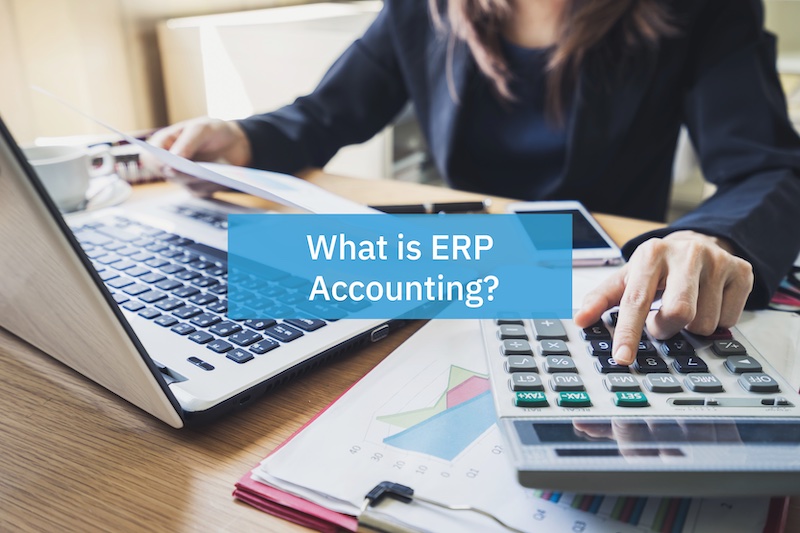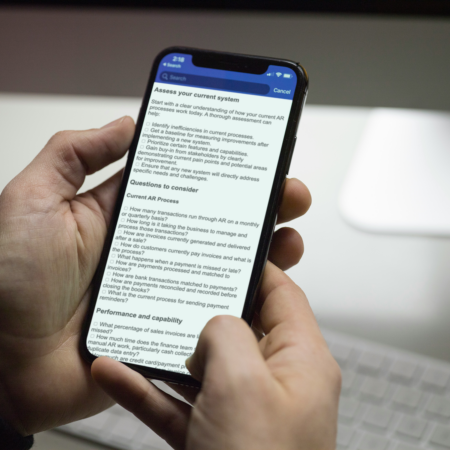
Enterprise Resource Planning (ERP) systems are among the most popular IT platforms on the market, particularly for accounting. But is this still the case, or have ERP accounting solutions become outdated?

How Does ERP Manage Digital Accounting?
ERP refers to an IT stack that supports a variety of business functions like operations and specialized industry functions like manufacturing tasks. Of course, one of its original features, and what it’s most known for, is accounting. ERP accounting streamlines the digital accounting process in two ways:
1. Interconnected Solutions
ERPs are IT platforms – similar to the newer customer relationship management (CRM). ERPs house different but interconnected applications related to individual business practices that can share relevant data with the accounting system. The goal is to have a system of integrated solutions that can house the same data. In accounting, there are different solutions that initiate transactions or document projects that are directly connected to the accounting software interface. This saves time by eliminating manual data entry into the general ledger.
2. Defined Process Structure
ERPs provide a defined, occasionally rigid operational structure to the processes on the platform. This includes accounting. This serves to establish organization and consistency in various operations. For digital accounting, financial processes usually are structured in the most common formatting or based on standard practice.
What Are Some Benefits of ERP Accounting?
ERP accounting software has significant advantages over standalone accounting software. This is due to the fact that the accounting system is pre-connected with other business tools.
Everything you do in business touches accounting, whether it’s the projects you’re funding or producing for customers or the marketing efforts behind your sales engine. Finances define all that you do. Applications connected to the ERP share data surrounding return-on-investment, sales numbers, operating costs, assets, and liabilities with accounting system. This means no more having to hunt down and manually re-enter and validate accounting data. This data connectivity offers several key benefits:
1. Enhanced Productivity
ERPs help eliminate the need for manual data entry and having to work between different applications. Because the accounting data is centralized on the ERP, staff can complete accounting processes faster. This also frees staffs’ time to focus on higher-priority tasks instead of re-typing or looking up info.
2. Streamlined Accounting Process
Because accounting data is centralized and automatically shared to the accounting system, staff can perform billing, reporting, and accounts receivable much more efficiently. This also means the accounting process doesn’t have to be interrupted by data entry and validation. If the accounting ERP enables high-level automation, financial management gets even easier and more effective.
3. Data Accuracy
One of the leading benefits of cloud-based technology is that you can link your essential business applications on the cloud to the accounting system. Besides saving time, this is critical for data accuracy, which is, of course, crucial for accounting. Because the transactions that run in different applications connect instantly to the accounting system, the information isn’t lost or at risk of being re-entered incorrectly. This also gives users a single cohesive data trail to re-check accounting entries for due diligence.
4. Cost Savings
Because your business tools seamlessly connect to your accounting system, ERP accounting can reduce expenses of both time and money. With increased accuracy, costly accounting errors can be avoided or corrected to reduce damage. This streamlined accounting frees team members from meticulous accounting chores like correcting spreadsheets.
Interested in learning how Automation can cut down costs and improve efficiency in your back office? Download our Automation Guide today to learn more.
Are There Limitations to ERP Accounting?
There are definitely some downsides to traditional ERP. ERP’s strength can also be a hindrance to those requiring more flexible solutions. ERP’s legacy IT structure is designed to give pre-defined functionality and set processes. This is meant to give users a strong base to manage key tasks. As mentioned earlier, this is great for consistency. However, this approach can become an obstacle to innovation and change.
Traditional ERP lacks the emphasis on customization that CRM built its system around. In today’s business world, software customization is mission-critical. Most companies rely on unique business models and practices, even within the same industry. Shaped by the early attitudes of computer technology, ERP didn’t evolve the same way CRM did. Early ERP developers didn’t imagine how its features could be manipulated for better use or further interconnected with other tech.
Is ERP Accounting Still Valuable?
Absolutely, especially more modern, flexible ERP accounting solutions. Two of the main reasons CRM came to surpass ERP are its focus on the customer/sales process and flexibility. But what if ERP was to adopt these qualities and maximize the customer’s accounting potential through highly customizable and configurable IT solutions. This is where Accounting Seed’s ERP accounting comes in.
Accounting Seed is Your Salesforce ERP Accounting Solution
Built on the Salesforce CRM, with a CRM mindset, Accounting Seed leverages the best of both IT platforms. Accounting Seed is the most flexible accounting platform on the market. But that’s not all. Our ERP prioritizes automation, making it easier for businesses to harness and utilize their accounting data.
See Accounting Seed in action
Get a close-up view of how accounting on Salesforce can eliminate the need for costly integrations—and silos of mismatched information—by sharing the same database as your CRM.


